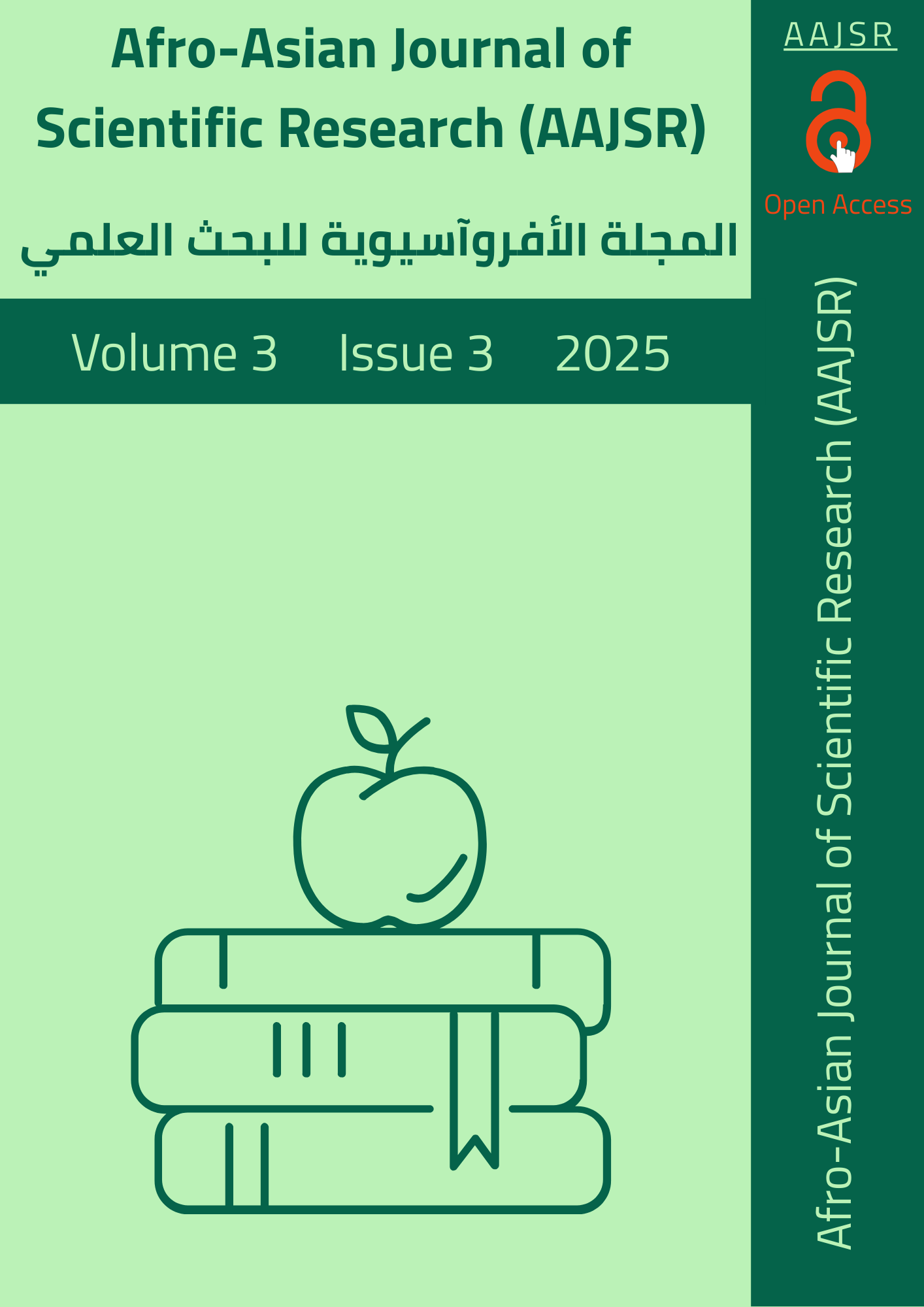Removal of Zn (II) Cations from Water Media by Carbonaceous Derived from Origanum Majorana: Kinetic Studies
الكلمات المفتاحية:
Adsorption Process، Natural Adsorbent، Marjoram Leaves، Zinc Ion، Kinetic Modelingالملخص
This research evaluates the capability of carbonized Origanum Majorana leaf powder to remove Zn(II) ions from contaminated water through batch adsorption experiments. The process was optimized using an initial Zn(II) concentration of 300 mg/L, pH of 4, a temperature of 30 °C, and a contact duration of 75 minutes. Maximum removal efficiency occurred at pH 4, while higher pH values led to decreased performance, likely due to the formation of insoluble zinc hydroxide. To understand the adsorption behavior, three kinetic models were applied: pseudo-first-order, pseudo-second-order, and intra-particle diffusion. The adsorption process was best described by the pseudo-first-order model, suggesting that the interaction predominantly occurred on the external surface of the adsorbent. Additionally, the intra-particle diffusion model indicated a dual mechanism-initial surface binding followed by diffusion within the pores.The study highlights that carbonized Origanum Majorana leaves serve as a low-cost, eco-friendly material for removing Zn(II) from water, making them a promising alternative to conventional activated carbon in sustainable water treatment technologies.






